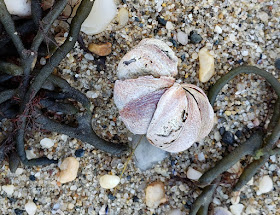Henri Viljoen, 29 November 1932 - 23 November 2018
There will be a remembrance for my dad in my parents' garden on Saturday December 1st at 5pm.
I do not believe we will meet again, but ever since I heard Laurence Olivier reading it (as a very old man, in a documentary of his life, which my mom and I and my dad watched together), I have loved this poem.
Death Is Nothing At All, by Henry Scott-Holland
Death is nothing at all.
It does not count.
I have only slipped away into the next room.
Nothing has happened.
Everything remains exactly as it was.
I am I, and you are you,
and the old life that we lived so fondly together is untouched, unchanged.
Whatever we were to each other, that we are still.
Call me by the old familiar name.
Speak of me in the easy way which you always used.
Put no difference into your tone.
Wear no forced air of solemnity or sorrow.
Laugh as we always laughed at the little jokes that we enjoyed together.
Play, smile, think of me, pray for me.
Let my name be ever the household word that it always was.
Let it be spoken without an effort, without the ghost of a shadow upon it.
Life means all that it ever meant.
It is the same as it ever was.
There is absolute and unbroken continuity.
What is this death but a negligible accident?
Why should I be out of mind because I am out of sight?
I am but waiting for you, for an interval,
somewhere very near,
just round the corner.
All is well.
Nothing is hurt; nothing is lost.
One brief moment and all will be as it was before.
How we shall laugh at the trouble of parting when we meet again!
For more about my dad, you can visit Seven Lessons from My Father
For more about my dad, you can visit Seven Lessons from My Father















